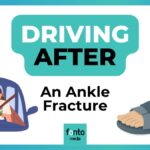By Marvin Ross
Attendees at the Family Alliance for Severe Mental Illnesses (FASMI) Annual General Meeting heard an inspiring talk by Dr Daniel Vigo. He is the Premier of BC’s Chief Scientific Advisor for Psychiatry, Toxic Drugs and Concurrent Disorders. This one hour talk and question period was so full of progressive changes happening in BC and sensible critiques of some of the common misconceptions on serious mental illnesses and substance use disorder disorder, that it is best to watch the video for yourself. However, allow me to focus on what I found crucial and with an added emphasis on housing which he considers to be a major issue.
We normally talk about mental health and addiction but to me that means very little. What is mental health? We don’t refer to cancer as physical health issues. Seemingly, Dr Vigo doesn’t either as he zeroes in on mental disorder, severe mental disorder, substance use disorder and acquired brain injury from long term use of the ever increasing toxicity of illicit drugs available today. In BC, the addicted homeless population has gone from 300 in 2013 to 3000 ten years later and with 30,000 at risk. This was the result of the closing of the Riverview Hospital without the proper funding for community programs. There was a transition from hospitals to jails, homelessness and precarious housing as a result.
This explosion caught the province off guard as there were not enough addiction specialists and the treatment model was based on the experiences of HIV and TB. The treatment/prevention strategies for those diseases involved prescription drugs taken at the right time consistently but many addicted patients also had schizophrenia or bipolar disorder and many could not follow that strict regiment. BC studies found that over half the overdoses have involved people with severe mental illness. The death rate from overdoses is 4/10,000 but among those with severe mental illness it is 90/10,000.
The goal for Dr Vigo and his office is to improve outcomes and the quantity and quality of services. The failure to use the Mental Health Act has meant that those with substance use disorder and schizophrenia were not properly treated or stabilized. The severe mental illness must be treated to have success with substance use disorder. If a minor demands that his/her parents not be told and refuses treatment, accepting that request is wrong. Dr Vigo said that this would not be done with any other illness.
He used the example of someone confused from hyperglycemia. Doctors treat even if the person claims to be traumatized by needles and refuses an injection of the needed insulin. We don’t give that person a bus pass to go to a bakery for cake but we give mentally ill patients with addiction a bus pass to get to the Downtown East Side – Vancouver’s drug centre.
Dr Vigo then talked about residential services for the ill and said that BC created approved homes quite some time ago but they were never used. These are homes where people could be mandated to live involuntarily under the Mental Health Act. Instead, they were held in hospital too sick to leave as they would end up homeless and possibly die. Involuntary committal is considered by many to be evil whereas doctors are there to help not imprison. He later added that psychiatrists are not planning to harm people but to take care of them. The use of the Mental Health Act is not coercive but is therapeutic and not evil. It is medically indicated to help people access care they need rather than to control them as many of the anti-psychiatry crowd claim.
BC now has two homes to treat people but is planning to expand that and is in the process of determining how many beds they do need and expanding the number. The province also plans to expand the number of Assertive Community Treatment (ACT) teams it has so more people can get the treatment they need in the community.
During the question period, I asked how he felt about the fact that many supportive housing projects in Ontario where patients with severe mental illnesses are put together with those with severe mental illness and substance use disorder, substance use disorders only, people discharged from jails, homeless from encampments and those with physical disabilities. I pointed out that from what I’ve seen and written about, this has led to chaos and crime.
Dr Vigo replied that there must be a continuum of housing starting with the hospital followed by high intensity housing in the community with security. These are approved licensed places with addiction services. Then comes moderate intensity housing with congregate care, assisted living supportive recovery, and family care. The next level down is low intensity supportive housing with people in single rooms with needed supports. The final level is independent living with rent subsidies. Residents are stepped down levels as they improve. You can find this at the 40 minute mark of the video.
Dr Vigo also pointed out that the requirement should be that drugs are not allowed which seems logical to me but is controversial. One agency in Ontario criticized me because they said it is naive and not supported by research to ban drugs. Others claim that it is a violation of the persons human rights to ban their use of drugs even though most rental apartment buildings ban tenants smoking.
The use of drugs in supportive housing, fortunately, is now being questioned and some agencies are starting to ban their use. BC and the City of Victoria are now putting up a new building that will be drug free. An existing supportive housing agency in Sarnia, Ontario has also decided to end their policy of allowing drug use. That resulted in a newspaper debate between the director of that agency and another which fully supports Housing First which you can read here. If anyone wants more information on the problems of supportive housing agencies, this is a report of one of them in Ontario.
While being opposed to allowing drugs, Dr Vigo is not dogmatic. People also need a home and they should not be denied that because they are not at the point where they can abstain. They need Housing First. A nuanced approach is required where they can be accommodated. The problem is that the housing system is not coordinated and different agencies have different types of homes and their own wait list in addition to their being about one third less beds than are needed.
Dr Vigo said that harm reduction can be terribly useful when used properly but devastating when not. Safe supply is suitable for those with substance use disorder. But in the case of people with severe mental illnesses who use illicit drugs to solve their symptoms and to prevent serious physical deterioration from continued drug use, harm reduction and safe supply is nothing but the biggest misnomer in the history of policy development.
Decriminalization without incentives to give up drugs is a catastrophe. At the start of this policy in BC, docotrs were told they could not remove substances from patients without permission of the patients. Doctors were also told that they could not encourage abstinence or push for rehabilitation as is done in Portugal in their program. Doctors were told that our policy simply did not include these elements as it was not agreed with.
Overall, the attendees at the presentation responded enthusiastically to the information and were encouraged by the BC plans for the future. We can only hope for those suffering and their families that much more is done in BC and in other jurisdictions.
For those who would like to see the entire lecture:
.










